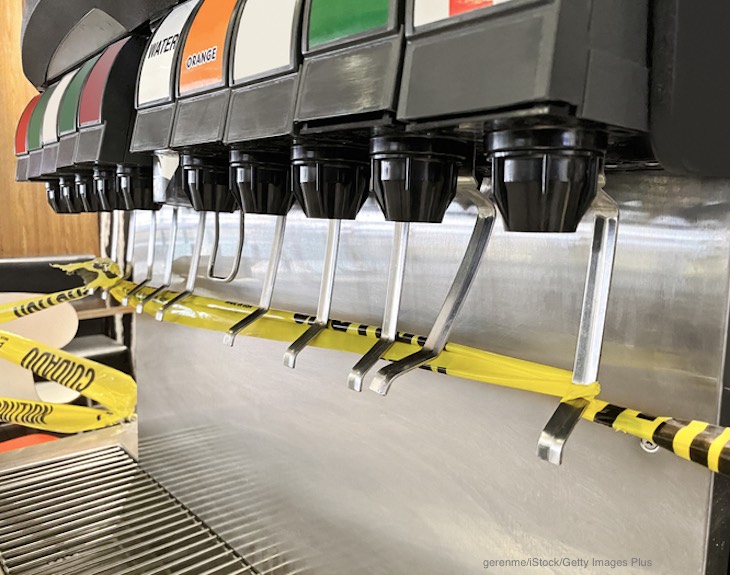Fast food soda fountains can be contaminated with coliform bacteria, which are found in feces and can be an indication of water contamination, according to a new study. The study was conducted at Loma Linda University in Loma Linda, California and was published in Water Supply, the International Water Association’s peer-reviewed journal.

Researchers found the microbial contamination in common sources of drinking water in the Eastern Coachella Valley, including the soda fountains. The findings showed that 41% of the water samples from those fountains contained coliform bacteria.
In addition, molecular analysis of the samples found traces of genetic material from bacteria, including Salmonella, E. coli, and Pseudomonas aeruginosa. The study’s authors are advising soda fountain owners to regularly clean and flush the water fountains to prevent this contamination from making someone sick.
Thomas Hile, PhD, MSc, an LLU affiliated researcher and lead author of the study, said in a statement, “To the best of our knowledge, our study is the first to assess the water quality from soda fountains, water vending machines, swabs, and tap water, especially in the Eastern Coachella Valley.”
For the study, researchers collected 72 water samples from fast food soda fountains, vending machines, and tap water from outdoor sources in the areas. In the laboratory, conventional cultivable methods and molecular analysis were conducted.
In several cases, the amounts of bacteria in the soda fountain samples exceeded the maximum allowed by the Environmental Protection Agency. Analysis of the water also indicated the presence of biofilms, which are organized communities of organisms that make it difficult to eradicate pathogens in food, medical, and industrial settings.
The authors think that biofilms form over time in water distribution systems, which are mostly plastic piping. The filtration systems of water fountains, when not maintained, do not prevent water contamination.
Ryan Sinclair, PhD. MPH, and the study’s last author and an associate professor at the Loma Linda University School of Public Health and School of Medicine said in a statement, “The study collected water samples from an underserved area, where there generally aren’t routine checks of water quality and lack of maintenance for soda fountains or water vending machines.” He added that the study reinforces the importance of developing surveillance and regulations that target fast food soda fountains and water dispensers.




